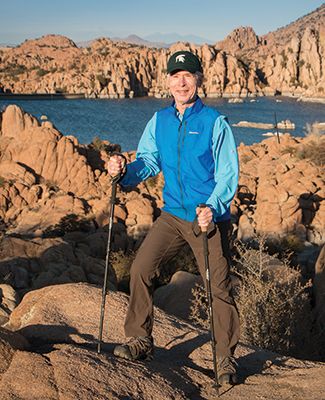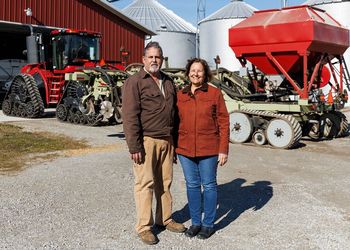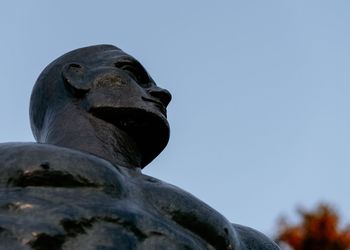Spartan Story: A Gift for Everyone

Spartan Story: A Gift for Everyone
Robert Manning turned his love and passion for America’s National Park System into a career as a researcher and professor.
October 1, 2018America’s 102-yearold, 84-million-acre National Park System (NPS) is far more than a collection of pretty places to Robert Manning, who arrived at Michigan State on a mission to protect it.
“The national parks are really an important manifestation of democracy. They’re the idea that these places are so important that they need to be protected for everyone, not just for a rich or powerful elite,” he said.
“They really are icons of American history and geography. We have places that are just so grand and so different from many other countries around the world. Manning, who earned a master’s and a doctorate in the College of Agriculture and Natural Resources, 1973 and 1975, respectively, said:
Everyone, regardless of their wealth or power, is an owner of places like Yosemite, and Yellowstone, and the Grand Canyon. It’s an important part of what makes America different.”
Now a professor emeritus of environment and natural resources at the University of Vermont, he spent 40 years there teaching the history, philosophy, and management of parks, and conducting research for the NPS.
But some of his most important work came during the yearlong sabbaticals he took to live in and do research in places such as Yosemite and Grand Canyon national parks.
“There’s really no other way to get familiar with what really goes on in a national park than to spend some time there,” he said. “I would use those sabbaticals in my research and teaching. They were great sources of stories and slides and case studies.”
Those assignments helped Manning attract as many as 300 undergraduate students to his introductory classes at Vermont and produce 10 books about the parks—as well as, with his wife, Martha, books about “extraordinary hiking.”
It all started after Manning, who described himself as a modest undergraduate, entered the U.S. Coast Guard after getting his bachelor’s degree in biology at Washington College in Maryland without much of a career plan. That’s when he began visiting places such as Yosemite and determined that helping to preserve such parks would be his life’s work.
“I really wasn’t a very worldly person before that. So, going to some of the national parks in California, in particular, it was just a revelation to me. I got so engaged with it that by the time I left the Coast Guard three and a half years later, I was quite sure what I wanted to do with my life.”
That decision brought him to MSU to study park and recreation resources. Manning said he is grateful to the school because “they really took a chance on me.”
The state of the NPS, of course, remains a concern for Manning, noting that NPS received nearly 331 million visits in 2016, setting a record for the third straight year.
One of the big issues that faces the national parks is the capacity at the parks to accommodate the public. In one way, that’s a wonderful thing that so many people would be interested in the national parks, but on the other hand it also creates real challenges for the park service. How can a park like Yosemite accommodate 4 or 5 million visits a year without damaging the parks or damaging the quality of experience that people are supposed to have?
“There’s nothing that’s more fundamental in my mind than finding the right balance between use and preservation. That’s one issue that won’t go away.”
Manning won MSU’s Leonard Twardzik Distinguished Alumni Award in 2002.
Contributing Writer(s): Tom Kertscher




